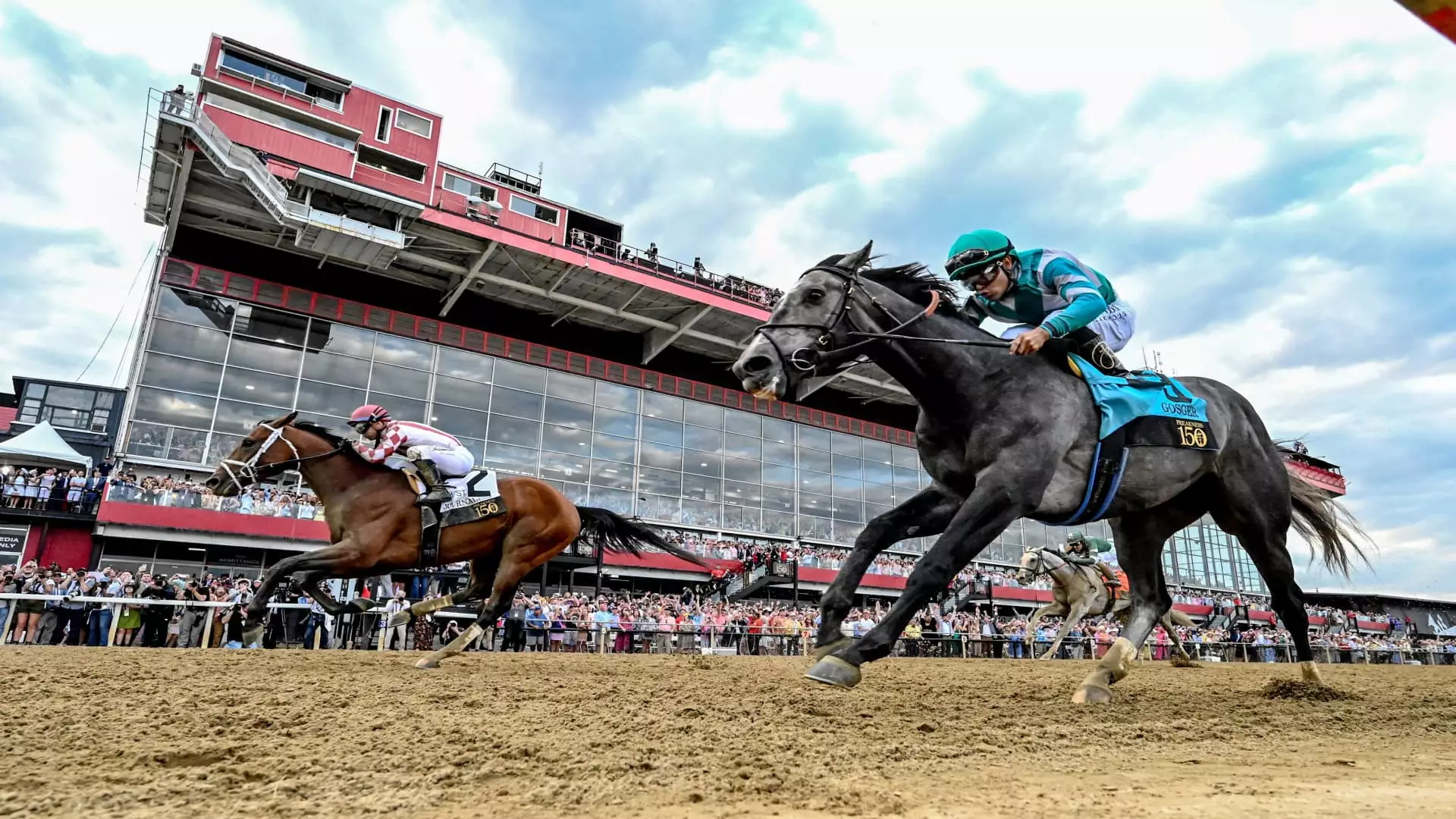In the world of horse racing, the term “comeback” is often thrown around like confetti at a celebration. But the recent Preakness Stakes showcased more than just a standard comeback; it highlighted the heart and resilience of a horse named Journalism. After a disappointing finish at the Kentucky Derby, expectations surrounding Journalism changed dramatically. Yet, against all odds, it rose to the occasion, channeling its fury, overcoming obstacles, and delivering an exhilarating victory. If there’s anything the Preakness illustrated, it’s that true champions are those who refuse to accept defeat.
As the race began, Journalism found itself at a significant disadvantage, trailing behind the leaders. The challenge wasn’t merely physical; it was psychological. Jockey Umberto Rispoli and trainer Michael W. McCarthy, both seasoned professionals, mirrored the tension that all observers felt. The racing world had structured its narrative: Journalism, the favorite with 6-5 odds, was destined for triumph, yet fate seemed to have other plans. Hot competition like Gosger pulled ahead, forcing Journalism to dig deeper than merely relying on its odds.
Fading Dreams and Unexpected Turns
When Journalism entered the final straightaway, the situation appeared grim. The gap between it and Gosger hadn’t just widened; it represented a chasm, a symbol of impending loss. Fans and bettors might have felt the weight of expectation peel off their shoulders as they braced for yet another second-place finish. The trend was beginning to form: a Derby favorite fading into oblivion. McCarthy’s earlier sentiments reflected a resigned acceptance, the type that can accompany any seasoned jockey or trainer facing the bitter reality of competitive racing.
However, the essence of sports is unpredictability, and this was no exception. As Journalism squeezed into a narrow space between Clever Again and Goal Oriented, a new narrative began to unfold. Like a furious phoenix emerging from the ashes, Journalism turned on the afterburners, igniting its competitive spirit. Rather than submitting to the disappointment felt after the Derby, this horse redefined its destiny, proving that sporting achievements aren’t solely measured by past performance but by an unyielding determination to seize the moment when it truly matters.
The Thrill of Victory
The jubilant moment when Journalism crossed the finish line wasn’t just a victory for itself; it was a testament to the power of perseverance. Rispoli’s declaration of the horse’s championship spirit echoed through the winner’s circle, instilling pride not only in the team but in every spectator rooting for an inspiring tale of triumph. This emotional moment encapsulated everything that horse racing stands for: the unpredictability of thrill, the euphoria of overcoming odds, and, most importantly, the emblematic spirit of resilience.
For McCarthy, the victory signified his return to glory after achieving a prior success with Rombauer in 2021. It’s a poignant reminder of the importance of believing in the unproven. Not many would have seen Journalism capturing this victory based simply on its previous performance, yet it embodies a broader narrative applicable to many walks of life. The true essence of competition frequently involves rising from dogged disappointment and finding the means to not just participate but to win, leaving behind the ghosts of second-place finishes.
The Bigger Picture and Future Implications
While Journalism’s victory reignites excitement and fervor within the realm of horse racing, it also prompts discussions regarding the sport’s future structure. With Derby winners frequently skipping the Preakness, there arises a question: Has the traditional two-week turnaround lost its relevance in modern competitive racing? The reluctance of powerful trainers to participate in consecutive races suggests a divergence in priorities, pointing to a potential need for reassessment and evolution within the sport.
The absence of strong contenders from the Derby raises suspicion about the excitement of the Preakness and the allure of the Triple Crown itself. A shift appears essential to revitalize interest in a sport deeply rooted in tradition yet facing the realities of an evolving landscape.
Thus, while Journalism elegantly raced to victory amid its struggles, the implications of this event stretch beyond mere athletic performance. They echo through the very foundation of horse racing, calling for dialogue over balance between tradition and innovation—sparking a narrative as compelling as the races themselves.



Leave a Reply